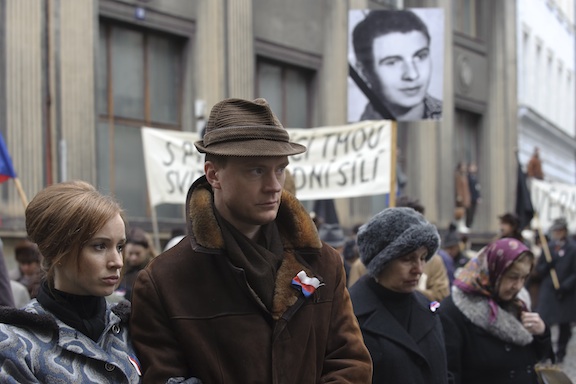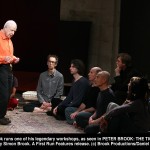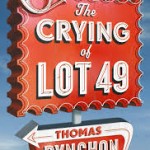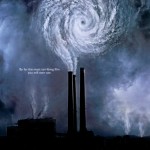I am about to recommend a four hour movie–a three episode television miniseries, actually–in Czech, about a dissident student who sets himself on fire to protest the occupation of his country by the Soviet Union.
I figure those who are interested in cold war or European history are already in, but what could I say that might persuade the average American viewer whose knowledge of, or interest in, the Czech Republic doesn’t extend much beyond Olympic sports or the World Cup?
Would it help if I told you that all three episodes are directed by Agnieszka Holland? Holland was nominated for an Academy Award in 1992 for the screenplay of Europa Europa. She also shared a writing credit with Krzysztof Kieslowski on Three Colors: White and Three Colors: Blue. Too obscure for you? She has directed studio films in the United States including The Third Miracle, Washington Square, and The Secret Garden. Speaking of television series, she shot three episodes of HBO’s The Wire and another five of Treme. In 2011, she directed In Darkness, an historical Polish drama about Jews in Lvov hiding from Nazis by living in the sewers. It, too, was nominated for an Academy Award.
Just as Holland’s work fluctuates between two disparate geographical spheres–Hollywood and Europe–so too it seems to cycle thematically between the political and the spiritual. To Kill a Priest is about a Roman Catholic who speaks out against Communism in Poland and is killed. Julie Walking Home (a.k.a. The Healer) is about a woman looking for a faith healer to lay hands on her son dying of cancer. Really, though, what unites most of her films is that they are about people living under harsh, often unimaginable circumstances.
Burning Bush is no exception. The film starts with the shocking act of protest, one that is so terrible that it seems something has to happen as a result of it. But it doesn’t ignite the sort of mass movement that the government fears. In many ways it doesn’t lead to much of anything, which is, in its own way, awful to contemplate. Not that the act is ignored. One episode focuses on attempts to identify the protester’s friends to see if more immolation is on the horizon. Another episode focuses on the family’s attempts to sue a government official for slander after he claims in parliament that this was an accident, or sabotage from others taking advantage of a mentally unstable sacrificial lamb who didn’t think he was going to burn in “cold fire.” The more ridiculous the lies, the faster they spread, because when the truth seems inconceivable, we almost prefer the lies.
I asked a colleague who is a specialist in Eastern European history what the big deal was. I know…there’s no polite way of asking that, is there? But given the draconian powers of the government, what were they afraid of? That more protesters would light themselves on fire? To what end? That I have to ask such questions is a sort of chilling reminder of how quickly human lives fade into history and how totally inured we are in modern times to mass tragedies.
Indeed the strongest part of Burning Bush was its mournful air of resignation. Over and over we see people convinced that an individual can do just a little more than nothing in the face of corporate power. And yet over and over again they try, because we long to believe that one person can affect change, whatever the odds against her.
Burning Bush is screening exclusively at Fandor for the time being. I know, I know: a four hour, Czech language miniseries…on my computer screen? Well, you can always get the Fandor channel on your Roku streaming device. Here’s my suggestion, the next big Hollywood movie you go see, skip the 3D glasses and the surcharge and use the difference to check on Holland’s opus. Then, as long as you are at Fandor, check out Werner Herzog’s remake of Murnau’s Nosferatu or Stanley Kubrick’s seldom seen Fear and Desire. Tyhen look to see what else is there. Who knows, it may be awhile before you make it back to the multiplex.













